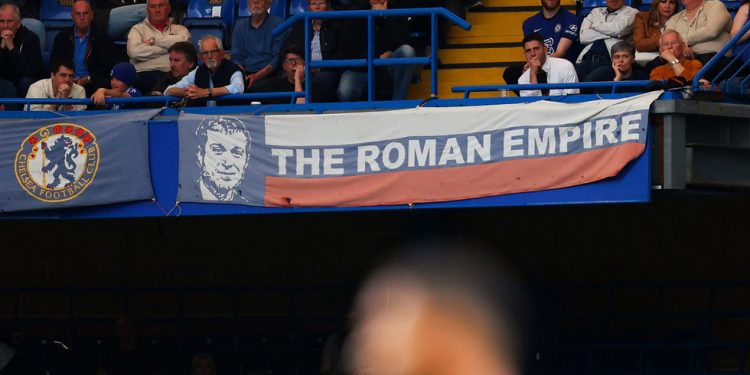Premier League football club Chelsea has finally been sold for a fee of £4.25 billion ($5.3 billion) after the UK government granted a takeover on Tuesday night. But what lies ahead for West Londoners?
Who Bought Chelsea?
Chelsea was purchased by a consortium led by LA Dodgers part owner Todd Boehly, who co-founded Connecticut finance firm Eldridge Industries.
Boehly will also be joined by Swiss billionaire Hansjorg Wyss – who was the first to claim to his country’s press that Roman Abramovich wanted to sell the club – as well as investment firm Clearlake Capital, where co-founder Behdad Eghbali will control all matters related to Chelsea, and Dodgers Co-owner Mark Walter.
Why was the club put up for sale?
Days after Wyss announced he would put Chelsea on the market, former owner Roman Abramovich announced on March 2 that he wanted to sell the club, which he had owned since 2003.
This came just before the British government froze Abramovich’s assets over alleged links to Russian President Vladimir Putin and in response to Russia’s military operation in Ukraine.
In order to continue playing games in England and Europe without being able to buy or sell players, Chelsea were granted a special licence, which expired on 31 December 2008.
What happens to the money from the sale?
The sale will consist of two stages, with £2.5 billion ($3.1 billion) initially going into escrow before being distributed to a charity for victims of the Russia-Ukraine conflict. Another £1.75 billion ($2.2 billion) will later be pumped into the club from Boehly.
One of the obstacles to the sale, which was allowed to go ahead while the UK government and Raine Group oversaw the process, was doubts about where the money would end up.
Abramovich insisted again on May 5 that he would not benefit in any way and said in a statement that his team had done so “Identified senior officials from UN bodies and major global charities tasked with establishing a foundation and drawing up a plan for their activities” .
Abramovich also had to debunk rumors that he was about to make a U-turn and claim £1.6 billion ($2 billion) he had previously waived.
But after those creases were ironed out, Britain’s Culture Secretary Nadine Dorris confirmed on Tuesday night her Tory government had issued a special license allowing the club to be sold after British authorities had done so “Now convinced that the full proceeds of the sale will not benefit Roman Abramovich or any other person sanctioned” .
in one Explanation the British government promised that they will “Begin the process now to ensure that proceeds from sales are used for humanitarian causes in Ukraine to support victims of the war” .
“Today’s steps will secure the future of this important cultural asset and protect fans and the wider football community,” it added and said it had been “Required in discussions with relevant international partners for necessary licenses” .
At the same time, Boehly and his group have also passed the test for Premier League owners and directors.
What are Todd Boehly’s main concerns that he needs to address at the club?
Boehly is reportedly already in talks with men’s and women’s coaches Thomas Tuchel and Emmay Hayes but has to plan for the short, medium and long term at Stamford Bridge.
While the women’s side have just won the double and are already poised for success, the men’s side faced a faint Premier League title fight and failed to defend their Champions League crown, being eliminated by eventual finalists Real Madrid in the quarter-finals was. Final.
With Manchester City and Liverpool easily the top two teams in the country, Boehly needs to ensure Chelsea can keep up and guarantee Champions League qualification every year.
City are also beginning to find themselves second to none in terms of their financial strength, with Abramovich being one of the few owners willing to take them on the transfer market and spend the money it takes to compete for trophies – 21 of which were won on Abramovich’s watch.
Also on the horizon is Newcastle United, backed by Saudi Arabia’s Public Investment Fund and looking to break up the ‘Big Six’, prompting other clubs to look over their shoulders.
At the same time, Boehly must also listen to Chelsea’s fans and gauge their interest in breakaway projects such as the European Super League, which fell apart last year when Blues supporters and their peers elsewhere in England expressed strong opposition.
What are professional coach Thomas Tuchel’s priorities?
The German technician needs cash from Boehly, according to reports the American will do it Give him £200m to spend this summer, which is already a great start.
A top central defender is needed with Antonio Rüdiger and Andreas Christensen both leaving and Sevilla’s France international Jules Kounde more than fits the bill.
The futures of some players, like captain Cesar Azpilicueta and Marcos Alonso, who will soon become free agents, also need to be settled while Chelsea decide which players can be released from their plethora of forwards.
In addition, Tuchel also has to convince youngsters like Mason Mount and Reece James that their future lies in west London.
Gazaapost

















